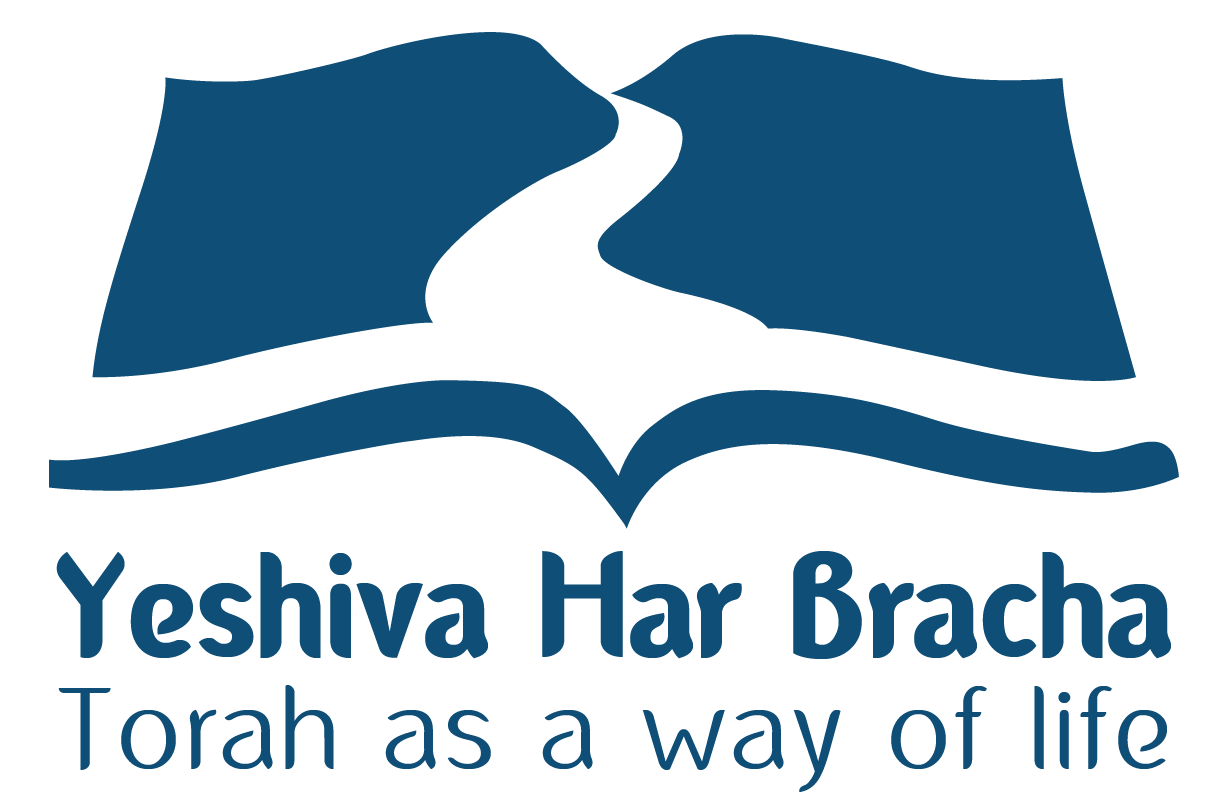The wisdom of physiognomy (face reading) is based on the understanding that there is a correspondence between the soul and the body * According to most Jewish sages, the status of face and palm reading is like that of astrology * Due to the commandment “You shall be wholehearted,” one should not seek hidden matters and the future through obscure wisdoms * It is only permitted to analyze personality using these wisdoms * The prohibition of ‘yayin nesekh’ (wine poured for idolatrous practices) applies only if the non-Jew shook the vessel intentionally in order to shake the wine within it
Q: Is it permissible to consult with people who specialize in the wisdom of face reading (physiognomy) or palm reading (chirology) in order to plan for the future, such as whether to open a business, get married, and so on?
A: The question depends on two issues. First, is there truth in this wisdom? Second, if there is truth, is it permissible to use it? First, let us summarize briefly that the wisdom of face reading is based on the understanding that there is a correlation between the soul and the body, and therefore the shape of the body, especially the face, which is the primary expression of a person, reflects their character and fate. Similarly, the wisdom of palm reading is based on the understanding that since a person does all their actions with their hands, the shape of their hand and the lines on it, express one’s character and fate.
The View of Those Who Completely Prohibit
Some poskim (Jewish law arbiters) say that just as there is no truth in astrology, there is no truth in these “wisdoms” either. Or perhaps in their view, sometimes there is truth in them, but the times when practitioners of these “wisdoms” are mistaken are so numerous, that they should be defined as falsehoods. Additionally, just as it is prohibited by the Torah to seek knowledge of the future through astrology, so too, it is prohibited to seek knowledge of the future through these “wisdoms,” and one who inquires from them transgresses the prohibition of being a soothsayer and diviner, which is included in the prohibitions of sorcery (as stated by Lechem Mishneh on Rambam, Avodah Zarah 11:9; Maaseh Rokach ibid.; Kerem Shlomo (Haas) on Hilchot Me’onen U’Michashef; Zivchei Tzedek YD 179:15; “Be’ur Chadash Maspeek” on Rambam ibid. And according to them, this is the view of Rambam, Ri’d, Semag, Tur, Kiryat Sefer, and others).
The Permitting Opinion
On the other hand, some poskim say that there is truth in these wisdoms, just as there is truth in astrology. And there is no prohibition in using them, because they are not associated with sorcery, provided that one consults someone who understands them properly, because many of those who practice these wisdoms do not understand them properly. In other words, according to this view, just as it is permissible to consult with a strategic advisor or economist regarding future planning, so too, it is permissible to consult about the future with astrologers (Ibn Ezra, Ralbag). Similarly, it is permissible to consult about the future with sages in the wisdom of face reading, and palm reading.
Among those who hold this view, some consider these wisdoms to be superior to astrology, because they are mentioned positively in the Zohar, and in the words of the Geonim.
The Mainstream View Prohibits Seeking the Future with Them
According to the mainstream view of most Jewish sages, the status of face and palm reading is like that of astrology. They sometimes succeeded, but they often fail, because over time, the transmission of these wisdoms has weakened, and became distorted. Additionally, even in the distant past, when there were more experts knowledgeable in these wisdoms, one could not rely on them, because they reflected a person’s nature and condition at that moment, while a person can change their nature through free will.
Practically speaking, according to the view of most Jewish sages, there is no prohibition of “lo t’nachashu” (do not practice divination) in seeking a prediction through astrology or the wisdom of face and palm reading, but due to the commandment “tamim tihyeh” (“You shall be wholehearted”), one should not seek hidden matters and the future through obscure wisdoms (Ramban in Meyuchasot 283, Yereim 139 and 431, Ritva Shabbat 156b, Ritva Shabbat 156b, Nimukei Yosef Sanhedrin 16b in the Rif, Ran Sanhedrin 65b, Ran, Derashot 11; and it appears to be the view of Beit Yosef and Shulchan Aruch YD 179:1-2. And the Rema states this explicitly there; Responsa Rabbi Betzalel 15:2; Levush 179:1-2; Chochmat Adam Isur V’Heter 89:3, and many others).
Is It Permitted According to the Mainstream View to Analyze Personality Using Them?
In principle, according to most Jewish sages who hold the mainstream view, it is only permitted to assess personality using these wisdoms, and not to investigate the future. And this is how they explain the words of the Zohar, that Jethro proposed to Moses to evaluate the judges through the wisdom of face reading, and the Geonim wrote that the Sages of Israel taught the secrets of the Torah only to students whom they saw were suitable for it, through the wisdom of face reading.
The Distortions That Occurred in the Transmission of These Wisdoms
And so wrote Ramban, but added that due to the destruction and exile, “When we lost [our sages] – we lost these wisdoms, and their memory remained distorted among few, and the philosophers came and rejected them” (Drush Torah Temimah, Bereishit 5:2). In other words, since the precise tradition of this wisdom was lost, it remained distorted, and consequently, when the philosophers examined it, they found it to be mistaken.
Similarly, Rabbi Chaim Vital testified about the Arizal that he knew hidden matters through ruach hakodesh (divine inspiration), and even knew how to read palms, but he did not want to teach it, because he considered it a “foreign wisdom” (Shevachei Ha’Ari pg. 22). It appears that the wisdom of face and palm reading also relied on divine inspiration akin to prophecy, and when we transitioned from the era of prophecy to the era of wisdom, our Sages became accustomed to examining everything in a defined and detailed manner, and found it difficult to learn and teach a wisdom that also relies on intuition. Since they invested less effort in learning it, mistakes became prevalent in it. The Arizal knew it through ruach hakodesh, but did not want to teach it, because he knew that without ruach hakodesh, it would remain a “foreign wisdom” and distorted.
The Issue with Assessing Personality Based on Them
Ostensibly, since most poskim hold that there is no prohibition to analyze personality using physiognomy and palmistry, even though mistakes have occurred in this wisdom, it will not harm a person to hear the opinion of one who specializes in it.
However, in practice, there is an issue with resorting to these obscure wisdoms for assessing personality, since errors have crept in. Even if they manage to perceive some character traits, any mistake could lead to significant distortion. This is because it is not comparable to a rabbi who knows their student, or a psychologist who converses with their patient, whose advice is based on logic, and consequently, the student or patient can examine their advice with reason. However, when the advice is given through these wisdoms whose ways are obscure, it is difficult for a person to reject a flawed analysis of theirs using logic, and their life could become complicated as a result. For example, they may think they have a certain talent and choose a profession accordingly to actualize it, while in truth, they have a different talent.
And so wrote the Admor of Lubavitch, Rabbi Menachem Mendel Schneerson: “Regarding this it is said, ‘She has laid low many victims’, one who has not reached the level of being a halachic authority and instructor, and I wonder if there is anyone in our generation who would say and publicize that they are expert in such matters” (Igrot Kodesh 15:64).
Wine Left Open That a Non-Jew Carried
Q: For the holiday, we brought to the table an extremely expensive bottle of wine that cost hundreds of shekels. After opening it and pouring into one of the cups, we asked to pass it to the other side of the table, and a non-Jewish worker transferred it while it was open. This raised a question that greatly disturbed our mood. Some claimed that the wine is prohibited for drinking because a non-Jew transferred it. Since we did not know the halakha, we sadly set the bottle aside.
A: It would have been permissible to drink the wine. Let us elaborate a bit on the foundations of the halakha.
What the Sages Decreed
Since idolaters had a practice of pouring wine for their idols, our Sages decreed that if a non-Jew touches wine in the same way they would touch it during libation for their idols, the wine becomes prohibited. The way idolaters poured wine for their idols was by shaking the wine with their hand, or with a stick. They were also accustomed to pour libations by touching it with their mouth through drinking, whereby during their drinking, they intended to slightly move the wine, thereby pouring it for their idols. Even when it is clear that the non-Jew did not intend, by his touching or drinking, to pour a libation of wine to idols, since he is an idolater, and touched the wine in the manner that idolaters would pour libations to their idols, the wine is prohibited for benefit. And if the touching was done by a non-Jew who is not an idolater, the wine is prohibited for drinking, but not for benefit (Shulchan Aruch Yoreh De’ah 124:11).
Does Shaking the Vessel Also Prohibit?
Some poskim hold that idolaters had an additional manner of pouring libations, by shaking wine in an open vessel. This means vigorously shaking the vessel in order to agitate the wine inside, without actually touching the wine itself (Rambam, Rosh). Others are lenient and maintain that they did not practice pouring by shaking vessels, and therefore, shaking wine within a vessel does not prohibit it (Ravad, Rashba). In practice, even though in principle it would be possible to be lenient, since the general rule regarding ‘yayin nesekh’ (wine poured for idolatry), whose law is rabbinic, is to rule leniently (based on Yerushalmi Sanhedrin 4:7; Rosh Responsa Clal 19:1). In practice, regarding an idolatrous non-Jew, the stringent opinion is initially followed, but in a case of loss, leniency is permitted regarding benefit (Shulchan Aruch and Rema 124:17). Regarding a non-Jew who is not an idolater, we are not stringent at all regarding shaking in a vessel.
When there is No Intention to Shake the Wine, All Views Permit
And according to the stringent view, the prohibition applies only on condition that the non-Jew intentionally shook the vessel in order to shake the wine inside, but if while carrying the open wine vessel the wine moved around, there is no prohibition. Only when the vessel is full of wine to the brim, such that there is a reasonable concern that the person touched the wine with their hand, is the wine prohibited (Shulchan Aruch 125:10).
Therefore, in your case, since the non-Jew only transferred the wine, and did not intend to shake the bottle in order to agitate the wine inside, the wine is undoubtedly permitted (see Peninei Halakha: Kashrut 29:6-7).
This article appears in the ‘Besheva’ newspaper and was translated from Hebrew.








